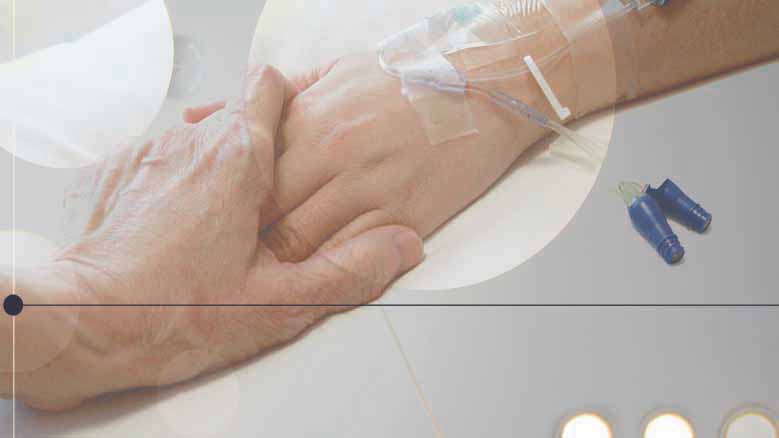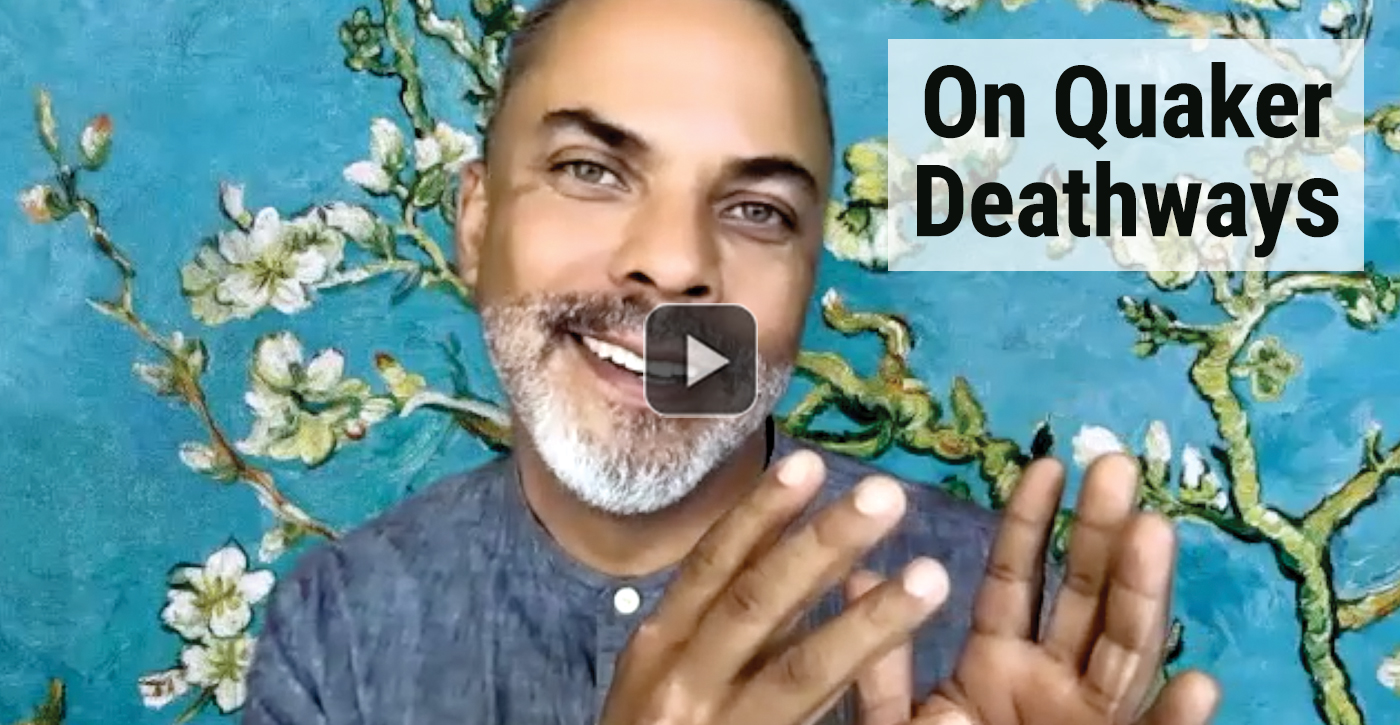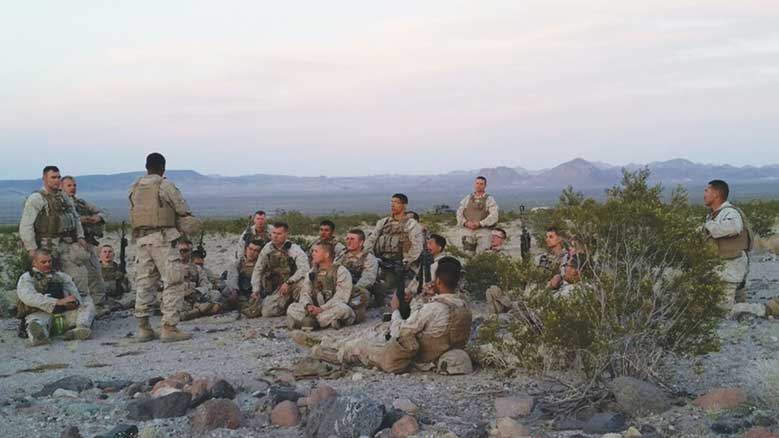A Journey into Hospital Chaplaincy
 When I was a child I never dreamt of being a hospital chaplain. I generally detest hospitals, and I don’t trust medical professionals. Hospitals can be giant cesspools for infection and disease; they smell funny. The souls of the dead roam hospital hallways, and I see dead people. Personally, I wouldn’t consider myself to be a “real” Christian; I couldn’t imagine qualifying to be a chaplain.
When I was a child I never dreamt of being a hospital chaplain. I generally detest hospitals, and I don’t trust medical professionals. Hospitals can be giant cesspools for infection and disease; they smell funny. The souls of the dead roam hospital hallways, and I see dead people. Personally, I wouldn’t consider myself to be a “real” Christian; I couldn’t imagine qualifying to be a chaplain.
So when a Christian friend from my Quaker seminary recommended I train as a hospital chaplain through a Clinical Pastoral Education (CPE) program, I honestly laughed in her face. Eventually, about a year into her pestering, I flittingly agreed and applied to one program in the middle of rural Appalachia, because I couldn’t think of anything better to do during my last year of seminary, and the idea of leaving the Midwest plains and being in a paid training program in the midst of gorgeous mountains and a temperate climate was appealing. Ah, isn’t that how most ministers find their paths? Mine is a default ministry.
My background is in teaching Quaker young adult spiritual leadership development, which I have done at both Pendle Hill and Earlham College. In my 30s, I trained as a Reiki practitioner, an energy healer, and a shamanic practitioner. As a Quaker minister, I participated in the School of the Spirit’s Way of Ministry program. I helped to found Quaker Voluntary Service (QVS) a few years ago. I also directed Arch Street Meetinghouse in Philadelphia. After almost a decade of working for Quaker organizations, I found myself at Earlham School of Religion in a master’s of divinity program, discerning what it means to be a Quaker minister and a healer/shaman. During this time, I officially launched a private practice as the Quaker Shaman, and have since met with hundreds of clients to help them discern God’s will in their lives.
These days spiritual discernment for me is pretty straightforward. I just ask God yes-no questions. It took me a decade of practice to recognize that I can actually feel a “yes” or a “no” from God in my body. First, I had to be willing to be in relationship with my own body. Eventually I was able to recognize that my body is my prayer stick: my Truth teller. God’s “yes” feels like a lifting in my chest; God’s “no” feels like a weight in my abdomen. My own will or ego feels like a strain in the back of my neck and my shoulders.
Driving to my CPE interview, I said to God: “I’m going to need a real clear sign that you want me to do this, because I (my ego) don’t want to.” I felt both shame and arrogance driving to interview at a hospital catering to southern Evangelical Christians. What did I have to offer to these people? I had even called a member of my peer ministers’ support group en route to the interview to proclaim just how much I didn’t want to be a hospital chaplain. This was my desperate attempt to set the stage for an easy release from this particular ministry.
But I got a clear “yes.” My theory is that I get clear answers from God because after years of tension, I’m actually now willing to listen to Spirit when the answer is different from what my ego desires. I had to be willing to release control, trust that God’s got the bigger plan, and recognize that I might only be given the immediate next step of that plan. My first CPE supervisor, the man who interviewed me, was that “yes” from God. He is a Southern Baptist who participates in native rituals with the local Cherokee population and is a recovering alcoholic and twelve-stepper. My heart leapt when I met him. My fear of not being Christian-enough, ministerial-enough, able-to-pray-out-loud-enough, compassionate-enough, or mainstream-enough dissipated when I met Don.
Don showed me that you don’t have to fit into a particular box in order to be a “real” hospital chaplain. He was excited to have a Quaker minister and shamanic practitioner train as a hospital chaplain. On top of that, my being psychic didn’t seem to faze him in the slightest. Don taught me that I was born to be a chaplain, and that all are on a spiritual journey, whether they call it that or not.
At the hospital I discovered that I am a trauma junkie. The world made sense to me the first time I was paged to the Emergency Department for a dying patient. I was hooked. Since I started working as a chaplain, I have come to understand that most people who work in trauma (doctors and nurses, emergency service personnel, police, firefighters, sheriffs, etc.) are drawn to it because they come from trauma. My own family of origin is a unique, foul pit of trauma. I viscerally understand what it’s like to experience physical, sexual, emotional, and spiritual abuse and have spent my entire adult life trying to survive and overcome my childhood trauma. In chaplaincy, I have been given an opportunity to utilize the coping skills I developed in response to that trauma, and get paid a salary (as opposed to shelling out money for therapy to overcome my ingrained coping skills). The deep shame I have carried from my trauma has transformed itself into hope.
It is oddly comforting and familiar to be with others during their trauma experiences. When I am standing in a bay with a screaming patient lying on the table surrounded by doctors and nurses shouting orders, and with family members in the waiting room wailing for God, I am at peace. I know how to breathe in that reality. I am calm and cool in the midst of the storm. My idea of a good day at work involves spending 8–24 hours hanging out in the Emergency Department and Intensive Care Units of a Level One Trauma Center attending to patients and their family members who have suffered significant emotional, spiritual, and physical trauma from altercations with other people, weapons, cars, trees, or natural disasters.
A few weeks ago within a three-hour afternoon stretch, six people from five incidents came into the emergency room, including two drivers who had hit each other in a motor vehicle collision, a young boy who had been physically and sexually abused by his older cousin, a man hit in the head and spine by a tree in a logging incident, a young man with a brain injury from a self-inflicted gunshot wound, and a female patient in cardiac arrest. Can you imagine just how hectic it was in the ER with all of those patients, family members, and medical personnel trying to address these critical incidents? The level of anxiety and fear was palpable.
By the time I left the ER that afternoon, I still had 15 hours left of my 24-hour shift. On days like that, I try to pace myself, because I literally have no idea what will happen when I’m at work. I pray into those days, asking God to guide my ministry when I am too spent to think clearly. When the pager goes off yet again after my fifth attempt to lie down in my on-call room to sleep, I pray that God will show me how to be present to the patient and family I am about to encounter in the middle of the night. I also pray that God will wake me up enough to be able to find the back door to the ER at 3:00 a.m. Then I pray that God will ease my heart enough to be able to fall back asleep again. Sometimes I leave the hospital feeling faith-filled and well-used. Other days I just go straight to bed and don’t get up until I have to go to work again.
As a chaplain, I hold hands, pray, find warm blankets, and bring hot coffee to those who need it. I cry; I laugh; I remain silent when there are no words that could bring comfort. I am the person that staff, patients, and families turn to when they feel alone, afraid, overwhelmed, happy, excited, exhausted, or worn out. I am the witness and the accompanier. I lay my hands on those who are suffering, and weep with them. Sometimes I pray verbally, but often silently. I wipe away tears, and I hug equally into grief and joy. I place my hands on the heads of doctors, nurses, emergency workers, helicopter pilots, and police officers, and bless them. I ask God to protect them and keep them safe. I ask that their hearts remain open to those they serve.
I am a midwife for the Holy.
I wait for the coroner to arrive. I sit with the body of a patient who has died, because the family doesn’t want them to be alone. I hold a dead baby when its mother cannot.
In my own awkwardly unprogrammed way, I lead chapel service on Sunday morning, standing at the front of the room offering whatever gift God has given me that day to share.
I help interpret medical jargon and figure out how to address the questions families are too scared to ask doctors. I coach surgeons to communicate simply with patients and families. I sit in family consultations with medical teams. I make the rounds visiting patients with doctors and medical personnel.
I gather medical and non-medical staff together to debrief particularly challenging traumas—those cases that haunt them, cases that they unceasingly relive in their minds. This often happens to our staff members who handle pediatric physical and sexual abuse cases. The staff crowds in and around the trauma rooms when these children are brought into the hospital; they want to protect these children and help them heal. The staff takes it personally if these children die on their watch. I take it personally.
Gracious and loving God, you know everything about us. You know us from the tops of our heads to the bottoms of our feet. You know us and you love us. Be with us here now. Help us to feel your love, your comfort, and your strength. Abide with us in our time of need. Release our bodies, minds, and hearts from suffering and fear. Cradle us in the unknown.
As a life-long Quaker, I was taught to find that of God in all people. As a result, I try to be open to all spiritual possibilities. My biased belief, however, is that too many hospital chaplains assume that people want Christian-centered ministry, and assume prayer and salvation should be offered. In my role as chaplain, my goal is never to convert patients to Christianity, to save them, or to baptize them. Personally, I don’t believe that Jesus died on the Cross for my sins; I am not baptized and don’t believe I need to be saved in order to be closer to God. I am a follower of Jesus’s teachings, but I would not call myself a Christian. My theory is that the Apostle Paul suffered from obsessive-compulsive disorder and was more focused on streamlining and managing Christian churches than on following God’s will. The Bible is a helpful reference guide for me but certainly not the Word of God. Prayer can be verbal, but it can also be nonverbal for me. I believe that God created us, but that God also gives humans the choice to live into God’s will for us. I don’t believe that God causes suffering; I do believe that God suffers alongside us. I don’t know if heaven or hell exist, but I’m open to that possibility.
I don’t particularly care whether or not those I serve go to church, believe in Jesus, read the Bible, or pray to a Heavenly Father. Mainly I care about whether or not they are able to express what they believe and find comfort and relief in doing so.
My intention is to listen to patients, families, and staff deeply, and to help them articulate their own theological truth—I strive to meet them theologically. If a patient wants to pray to a male God and ask Jesus to release him from sins, then I offer prayer in that way, but I don’t assume that will be a part of our interaction. The other day a nurse practitioner in the ER asked me what he should do if a patient requests a satanic priest (apparently this had happened to him recently). I told him to page me immediately. When he asked what I would say to the patient, I told him I would ask the patient to tell me more about why she or he desired a satanic priest. A nurse manager, overhearing the conversation, asked how I would pray with that patient. I said that I would ask the patient how he or she wanted to pray.
My job as chaplain is not to judge someone else’s theology, but to help them understand it more fully. Many trauma patients who come into the hospital do not self-identify as spiritual or religious. I have found, however, that theology rears its head when people experience a life-altering trauma or illness. All of a sudden they want to understand why they are suffering, and they want to look back on the trajectory of their lives and question their choices. Theology 101 happens all the time in the middle of the night in the trauma bay, and I get to be a part of those discerning conversations.
God is the Great Physician and Teacher, the Source of all that is and all that shall be, the Eternal Spirit, Creator, the Pain Bearer, the Great Mystery, the Holy, and the Mother and Father of us all. God is with us in our most trying moments, our deepest sorrow. God celebrates with us, and wraps us in loving arms while we weep. God hears our prayers. God offers healing, but not always in the ways we imagine healing to be possible.
God’s hands are our hands. God’s heart is our heart. I see this every day with my colleagues, some of the most generous, empathetic people I know, who deeply feel the pain and grief of those they serve at the hospital. Our housekeepers, engineers, registrars, security officers, respiratory therapists, pharmacists, surgeons, nurses, and house supervisors offer excellent spiritual care to patients. I feel honored to walk alongside these good people, many of whom have different theological frameworks than those I claim. What we do hold in common are willing hearts and minds, and a deep desire to know God’s presence in our midst.
I am a child of God. I am a trauma survivor, a compassionate listener, an empathic healer, an intuitive Truth teller. I am a death doula, a minister to souls, a discerner of God’s will, a witness and a guide: a midwife for the Holy. I walk alongside those who are suffering and afraid. I help others to discern God’s will in their own lives, and I serve as a reminder of God’s presence in each moment. I am the Quaker Shaman. This is my path.





This article strikes me as amazing, coming from a woman who has enough openness to let texts and titles move aside, and thereby get to the direct trauma of whatever person is before her in the hospital. As a Buddhist practitioner, it would never occur to me to request a chaplain if I were hospitalized, but this article shows me that there are chaplains out there who have room for complexity and Christain doubt. I’m glad she’s in the world.
Emma, this is so well-stated, honest, and inspiring. You describe so well my own thoughts and experience in my residency thus far. A Midwife for the Holy. I love it!
[…] Midwife for the Holy […]
[…] theological officers.” I like that. But ever since I read Emma Churchman’s article “Midwife for the Holy” – first published in Friends Journal then at On Being with Krista Tippett, I’m taken […]